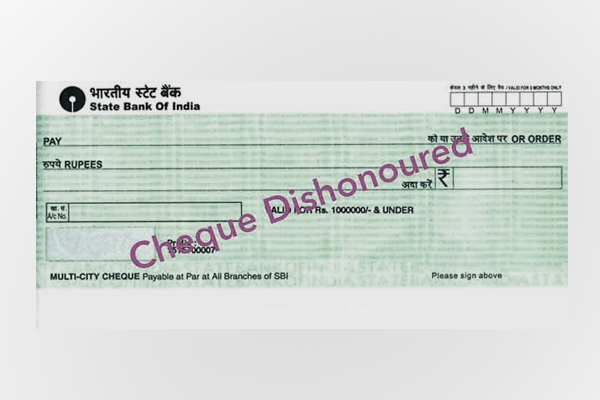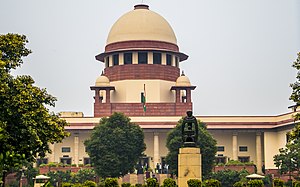
Cheque Dishonure | Is Wife Liable if cheque is of joint account ?
Noting that only her spouse was a signatory to the check, the Bombay High Court recently invalidated and set aside process and a summons given to a woman by the Magistrate's court in a case involving a bounced cheque.
The Supreme Court's decision in Aparna A. Shah v. M/S. Sheth Developers Pvt. Ltd. was cited by Justice Sarang Kotwal.
We further hold that a joint account holder can not be penalized for issuing a cheque from a joint account unless all joint account holders have signed the cheque in accordance with Section 138 of the N.I. Act, he held.
Following the Magistrate's summon of November 27, 2019, u/s 138 of the Negotiable Instruments Act against both husband and wife for dishonure of a cheque, the woman filed an application with the High Court.
The complainant claimed that in June 2018, he was approached jointly by the complainant's wife and husband for financial assistance.
He gave them two cheques totaling twelve lakhs. A receipt for Rs. 12 lakh loan had also been produced by the applicant's spouse.
The plaintiff asserted that the wife knew this.
It was said that the husband wrote three cheques totaling the remaining Rs. 9 lakh from the couple's joint account after repaying Rs. 3 lakhs.
Nevertheless, the cheques were returned unhonoured when the complainant deposited them with his bank.
It was maintained that since the wife was managing her husband's daily activities and was aware of the facts, she shares the blame for her husband's behavior.
Referencing Aparna Shah's ruling, the wife's attorney claimed the woman could not be charged because she was not a signatory to the cheque.
Judge Kotwal noted that the wife's signature on the cheque was not even relevant to the allegation.
"She is tied in by asserting that the applicant, a woman, was managing her husband's daily activities, and, as a result, she was too accountable for the act of husband.
In the contested decision, the learned magistrate noted that both of the accused signed the challenged cheques. This is false in terms of facts, the court declared.
Following the replication of findings from Aparna Shah's ruling, the court annulled the wife's summon issuing process.
"The Applicant stands to benefit much from these remarks (of the SC) in the current case's factual matrix.
Because of this, the prosecution can not stand against the current applicant, and as a result, the court stated that the impugned decision may be set aside in this case.
Criminal Application No. 747 of 2023, and the case name is Satish Vasant Dharukkar & Anr. vs. Aarti Shailesh Shah.
Your free access to Supreme Law News has expired
For further details contact:
Dr. Ajay Kummar Pandey
( LLM, MBA, (UK), PhD, AIMA, AFAI, PHD Chamber, ICTC, PCI, FCC, DFC, PPL, MNP, BNI, ICJ (UK), WP, (UK), MLE, Harvard Square, London, CT, Blair Singer Institute, (USA), Dip. in International Crime, Leiden University, the Netherlands )
Advocate & Consultant Supreme Court of India, High Courts & Tribunals.
Delhi, Mumbai & Dubai
Tel: M- 91- 9818320572. Email: editor.kumar@gmail.com
Website:
www.supremelawnews.com
www.ajaykr.com, www.4Csupremelawint.com
Facebook: /4Clawfirm, /legalajay Linkedin: /ajaykumarpandey1 Twitter: /editorkumar / YouTube: c/4cSupremeLaw Insta: /editor.kumarg
Telegram Channel
Whatsup Channel






